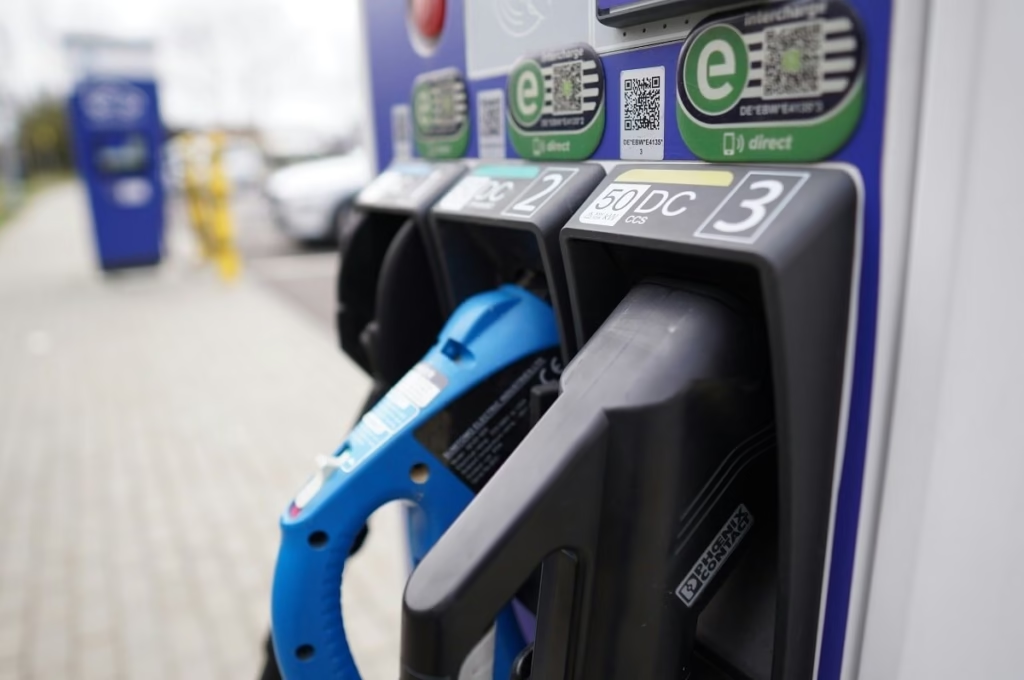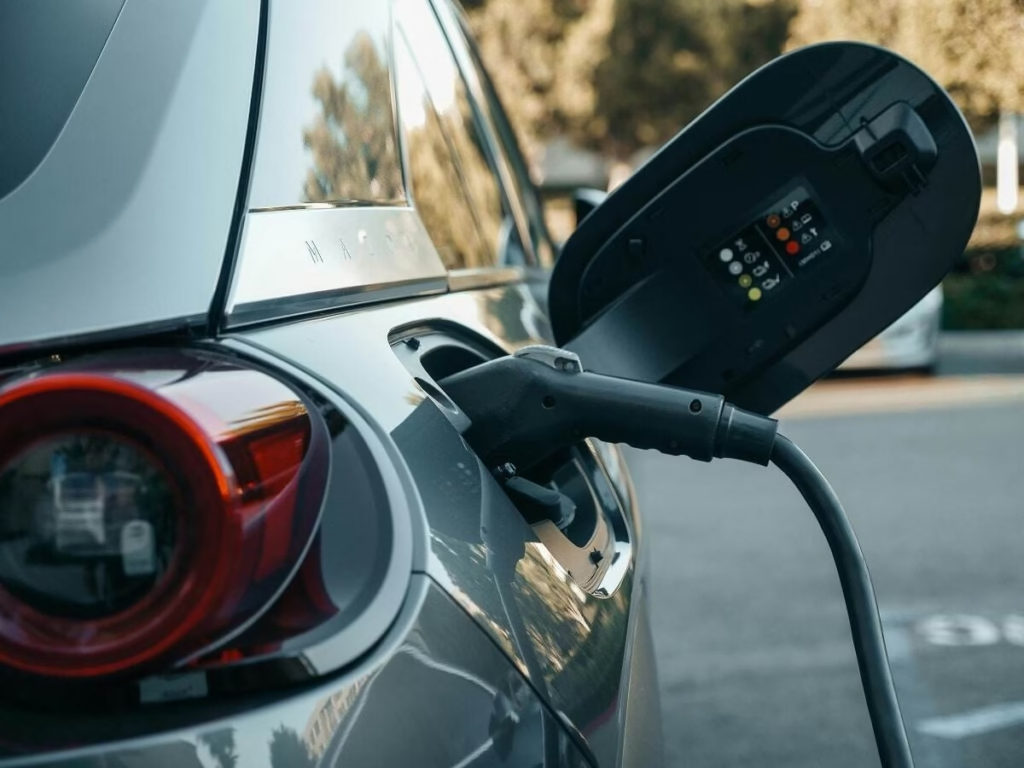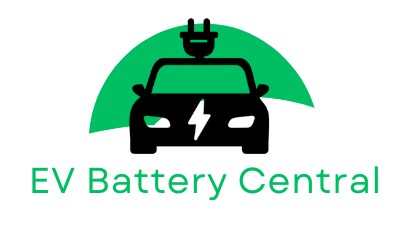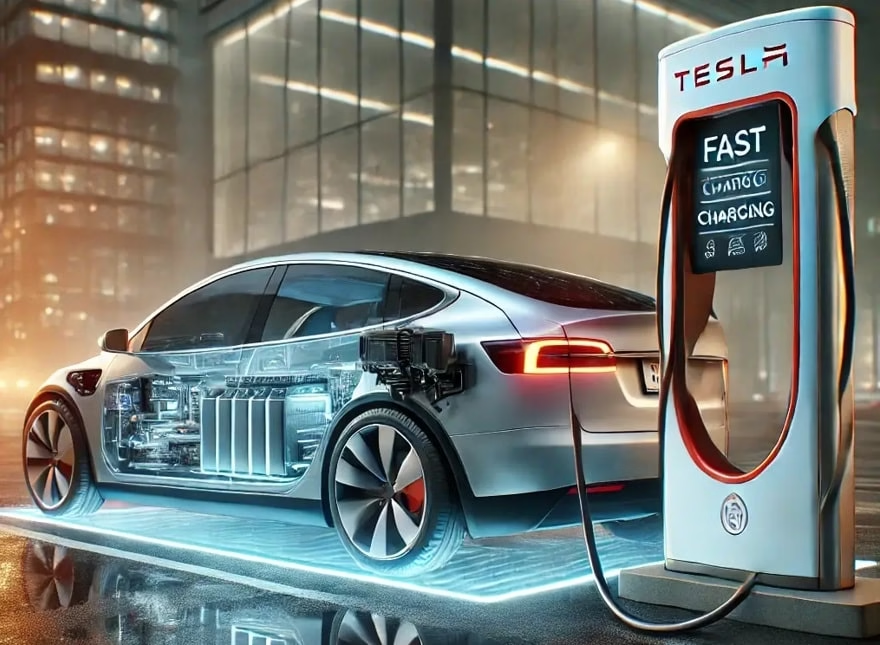Are you an EV car owner who prefers level 3 DC fast charging? Are you aware of the potential long-term effects on your battery health? Nowadays, people often skip level 1 and 2 charging due to time constraints, opting for DC fast charging, which can get EVs ready to go in just 30-40 minutes.
So, is fast charging bad for EV batteries? The short answer is no; it does not significantly impact battery health. However, it’s still advisable to limit fast charging to maintain overall battery health.
This blog will help you explore your concern further: Is fast charging bad for EV batteries or not? It will also cover other important aspects, including the influence of fast charging on EV batteries and best practices to prolong your battery lifespan for years. If you’re concerned about EV battery maintenance, there are steps you can take to ensure your EV performs efficiently for years to come.
Also, check out the quiz below to test your knowledge, and explore the infographic for key findings!
Table of Contents
ToggleIs DC Fast Charging Bad for EV Battery? Explained in 2 Minutes
Wondering if fast charging is affecting your EV battery? In this short video, discover the effects of DC fast charging on your battery health and best practices to prolong battery life.
How Does Fast Charging Work?
EVs are only driven or operated using DC power. However, Level 2 chargers that are set up in the home or at workspace generate AC power which is eventually converted to DC. This AC-to-DC conversion process takes time, which is why Level 2 chargers typically provide around 40 miles of range per hour of charging. There is onboard charging equipment responsible for the conversion of AC to DC.
In DC rapid charging the converter is separated now on-board hardware removed from the job of AC to DC charge conversion. This separation saved the battery charging time completing the threshold of 80% within an hour. The latest EVs come with features to set the battery charging time and limit the components automatically. It can sense that and reduce the unnecessary stress to battery and other electronic components.
Does Fast Charging Affect EV Battery Life?

Experts cited concern about using the DC fast charging frequently. According to studies and reports from Idaho National University, if you utilize fast charging regularly, then battery degradation will start faster. From the longevity perspective, level 2 charging is considered ideal.
Fast charging means energy is delivered more quickly, It means the charger points generate high energy and transfer power faster which puts stress on the battery cells and other electronic components. We understand if you’re planning long trips, you may need to use DC chargers but keep it limited or when needed.
Battery packs are an important and primary component of every EV car. On average an EV battery can sustain for 8 years however if not well-maintained it will impact battery lifespan. DC fast chargers can charge the EVs faster, yet they are raising the concerns that it’s not the fault of the chargers but the bad habits we accidentally practice.
- Deliberately utilizing the fast charger battery degraded faster as it transferred energy faster and most of the EVs failed to hold and charge.
- Firstly, fast charging generates excessive heat which tempers the EVs encountering chemical reactions and thermal expansions thereby accelerating battery cell degradation.
- Secondly, Sometimes the EV models aren’t equipped with the thermal management system that is responsible for setting the EV temperature.
- As you know, fast chargers or level 3 charging points result in a higher state of charge in minimum time. If you do it intentionally it will degrade the holding capacity and other damages to battery components.
- As the battery charging decreases, it will also impact on driving hours, power output, and performance due to the higher magnitude.
To avoid any structural or functional damage it is best to use rapid charging in emergency.
Impact of Fast Charging on EV Battery Health [Infographic]
The infographic breaks down key findings, battery longevity tips, and the impact of temperature on battery health. A study by Recurrent researchers analyzing over 160,000 data points found no statistically significant difference in range degradation between EVs that fast charge more than 70% of the time and those that fast charge less than 30% of the time.
![Impact of Fast Charging on EV Battery Health [Infographic]](https://evbatterycentral.com/wp-content/uploads/2025/01/Impact-of-Fast-Charging-on-EV-Battery-Health-410x1024.avif)
Myths and True Facts about DC Fast Charging
Fast chargers created hype among EV owners who enjoy long drives. However, most of the EV models are not as compatible so it’s best to avoid it.
- Each EV charging curve differs including its capability, current and energy acceptance, and battery voltage. Thus, forget that all fast chargers can charge your vehicle in the same time frame.
- Yes, too chilled or too hot weather conditions indeed influence battery life, efficiency, and speed. If you connect the chargers in such a condition, then EVs will take more time to cool down or warm up to reach an optimal temperature level for charging. For insights on how cold weather affects your battery life, see our article on EV Battery Life in Cold Weather.
- It doesn’t matter how much kilowatts DC charger is, it will only transfer the output as per your EV capability. The set of requirements and limitations equally matter to charging speed. Although the National Electric Vehicle Infrastructure has initiated the formula program for frequent long trips, offering exciting opportunities for enhancing travel convenience and accessibility for EV users.
- The battery functions perfectly in moderate charging conditions and temperatures if it crosses the ideal range of 70s to 80s Fahrenheit which stresses the battery.
Best Practices to Minimize the Effects of Fast Charging on EV Battery

Many EV owners prefer to go with fast charging as they find it more convenient. However, it’s not good for their battery life and health. If you regularly go on long drives and you want to use fast-charging DC chargers here are some essential practices that you should follow.
- Firstly, you should limit fast charging, be proactive in checking the battery status, and schedule the charging time to avoid any inconvenience. You can try to charge EVs with level 2 AC charging for regular drive.
- While you are purchasing EVs you must ask manufacturers about the software for moderate charging and battery health. This way you can take control of when the charger should stop the job when it reaches a certain limit.
- Optimize charging time with scheduled charging for regular driving. Avoid overcharging or under-utilizing charging or reserve drives without hitting the SoC levels.
- Whether the temperature is very high or extremely low both influence the battery life of EVs. While you are utilizing the fast chargers keep the feasibility context in mind and try to connect the chargers at an ideal moderate temperature.
- Each EV model’s features, ranges, efficiency, and performance level vary thus its requirements and limitations may differ for battery power technology, charging time, holding capacity, thermal management systems, and SoCs.
To prolong the battery life even with DC fast charging you must adhere to EV dealers and manufacturers’ best practices and guidelines thus it can reduce the potential risks. For more best practices, check out our blog post on EV Battery Charging Best Practices.
Conclusion
Fast charging is an excellent option in emergencies or for long trips but should not be overused. Otherwise, it will impact even minimally due to frequent use. Following the best practices outlined above can help protect your EV battery lifespan and ensure optimal performance. Remember, moderation and mindful usage are key to maintaining battery health.
FAQs
Is AC Charging or Level 2 Charging Better than Level 3 Rapid Charging?
DC Fast-Charging (Level 3) is better for quick top-ups on long trips, while Level 2 charging is more convenient for daily use at home or workplace.
What is the Importance of Battery Preconditioning?
Not all-weather situations are favorable to EVs. Thus, for optimal charging output preconditioning of electric vehicles is essential. Negligence with battery health will cost higher expenses.
How Can I Minimize the Risks of Fast Charging?
Maintain the state of charge following the rule of 20-80%. Also, park vehicles at moderate temperatures and reduce the frequency of using fast chargers.

EV Battery Central is your trusted source for EV battery insights. We provide thoroughly researched insights on battery maintenance, recycling, replacement, and innovations in electric vehicle technology. Our mission is to research and simplify complex battery technology for the everyday EV owner.

